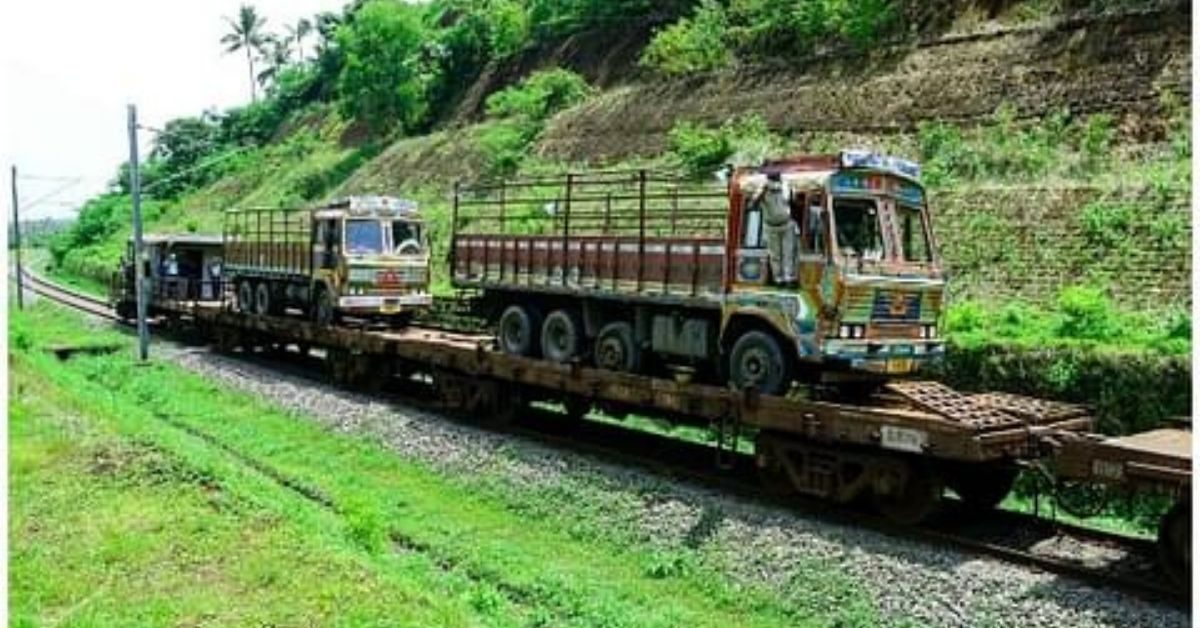Indian Railways, the national transporter of India is looking to woo more corporate customers and capture the modal freight share from national highways to the dedicated freight corridors. Earlier, the railways under its national rail plan expressed its intentions of grabbing 40-45 percent of the total domestic cargo movement [close to 3,000 million tonnes of yearly freight volumes (currently 1,418 mt)] by 2030 from the present level of 26-27 percent.
In light of the same, the ministry of railways is likely to offer a slew of concessions to truck operators on dedicated freight corridors (DFCs). As per sources, 25-30 per cent relief in the existing roll-on, roll-off (RoRo) charges may be in the offing, along with higher concessions on traffic captured for empty wagons.
The issue was deliberated upon by the railway board and Dedicated Freight Corridor Corporation (DFCC) after DFCC highlighted that the existing RoRo rates were too high for truckers to make the shift from roadways to railways.
In RoRo, trucks, with or without goods, are loaded on trains through a ramp provided at the dead-end of a loop on BRN wagons (specialised open wagons built solely for transportation of trucks). Before loading, the trucks are weighed and passed under a height gauge to ensure that they conform to the regulations for safe passage.
“While the segment is new for us, there is significant demand for RoRo services from the private sector, because the truck operator saves money on three counts through this mode — fuel cost, highway toll, and wear and tear of the vehicle. Currently, the traffic on RoRo is minimal because the present rates aren’t feasible,” a DFC official said.
RoRo reduces the scope of damage and delays during the shifting of goods from one transport to another, therefore solving the last-mile connectivity woes. At present, these services are operational on DFCC tracks and Konkan Railways.
In July 2022, the ministry notified charges for the RoRo segment on DFCs. Under the applicable charges, a 500-km trip for a wagon with a rigid body vehicle (or truck) would cost the truck operator Rs 33,556 at present. A full train of these specialised BRN wagons would have 43 wagons.
In the following months, DFCC had sought special dispensation from the board to set its own station-to-station (STS) rates, which was disallowed by railways citing technical reasons. On February 21, the board issued a letter to DFCC that fresh rates may be worked out on a case-to-case basis depending upon the assured traffic, cost of running the rakes, investment in terminals, and modifications required in rakes.
These deliberations after a long eight months period are likely to see closure soon, said the official from the ministry.
RoRo on DFCs are considered to be a game changer for the current logistics landscape, with the corridors providing an average speed of close to 55 kms per hour (kmph), which is over thrice the current average off regular Indian Railway tracks (18 kmph), including yarding and stabling.







